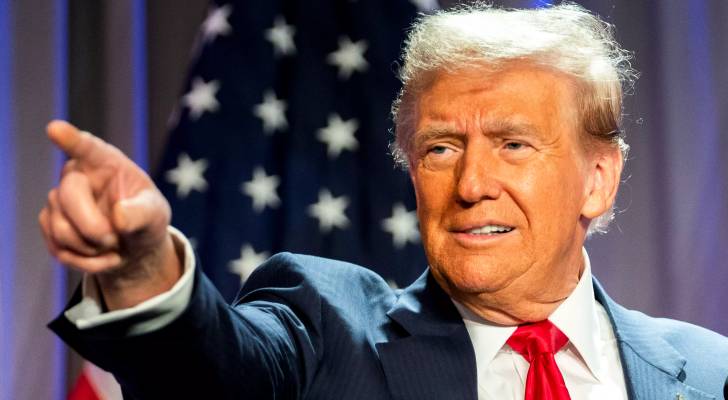President of the United States, Donald J. Trump
100 days of Trump: Major actions, decisions reversed
As Donald J. Trump, the 47th President of the United States, reaches his 100th day in office on April 30, 2025, his second term has been marked by a high volume of executive actions and significant policy changes.
His administration has focused on immigration enforcement, economic measures, and foreign policy adjustments, influencing both domestic governance and the US’s global stance. These efforts have garnered strong support from some and criticism from others, while certain policies have been adjusted due to legal, political, or practical considerations, reflecting a dynamic start shaped by ambitious goals and complex challenges.
Major actions in the First 100 Days
Since taking office on January 20, 2025, President Trump has signed over 300 executive orders, a notable pace compared to historical benchmarks like Franklin D. Roosevelt’s first 100 days. These orders address diverse areas, including:
- Immigration, border security: Trump has emphasized immigration enforcement, issuing orders to revoke legal status for certain groups and prioritize deportations, including alleged gang members. Border crossings have reportedly decreased, with a Fox News poll showing voter approval for these measures, though overall immigration policy support has declined.
- Economic policy, tariffs: On April 2, Trump introduced 125 percent tariffs on Chinese imports and 10 percent tariffs on over 75 countries for 90 days to bolster US industries. These policies have led to market fluctuations and higher costs for some businesses, such as a Florida distributor of Chinese goods, though supporters argue they protect American jobs. Polls reflect mixed views, with some voters optimistic about long-term gains and others concerned about immediate price increases.
- Government restructuring, DOGE: The Department of Government Efficiency (DOGE), led by Elon Musk and Vivek Ramaswamy, has reduced federal staffing, including 2,400 Veterans Affairs positions, to streamline operations. Supporters cite potential cost savings, while affected workers report challenges, and critics question the initiative’s transparency. DOGE’s data management role has sparked debate over efficiency versus oversight.
- Criminal Justice, Pardons: Trump granted clemency to about 1,500 individuals involved in the January 6, 2021, Capitol riot, a decision supported by some as addressing perceived judicial overreach but criticized by others, including bipartisan voices, for leniency toward serious offenses. A call to impeach a federal judge over a ruling drew a response from Chief Justice John Roberts, highlighting judicial tensions.
- Foreign policy, alliances: Trump has recalibrated US foreign policy, questioning NATO commitments and hosting Ukrainian President Volodymyr Zelenskyy on February 28. A campaign pledge to resolve the Russia-Ukraine war quickly was later clarified as rhetorical, aligning policy with ongoing diplomacy. Proposals like Greenland annexation reflect an unconventional approach, drawing mixed reactions.
- Energy, environment: Trump exited the Paris climate agreement and expanded energy exploration, moves supporters view as prioritizing economic growth and critics see as undermining environmental progress.
- Transparency, investigations: Trump fulfilled pledges to declassify JFK assassination and Epstein-related documents, earning praise from transparency advocates, though some critics question the releases’ scope.
Decisions reversed or adjusted
Trump’s first 100 days have not been without backtracking, with several decisions rescinded or altered due to legal, political, or public pressure:
- Wisconsin Judge incident: A brief detention of Judge Hannah Dugan over a migrant-related case was reversed without charges, prompting debate over judicial-executive relations. Supporters viewed it as enforcing immigration law, while critics saw it as overreach.
- Tariff adjustments: Initial tariff rates on over 75 countries were reduced to 10 percent for 90 days after negotiations, reflecting responsiveness to market and diplomatic feedback. Some praise the flexibility, others note ongoing economic concerns.
- Russia-Ukraine commitment: A campaign pledge to resolve the Russia-Ukraine war quickly was clarified as aspirational in a Time interview, aligning policy with diplomatic realities. Supporters see this as pragmatic, critics view it as inconsistent.
- Federal staffing changes: A January 21 hiring freeze led to significant layoffs, particularly at Veterans Affairs, but some rehiring occurred to maintain operations. Proponents argue it streamlines government, while critics highlight workforce disruptions.
Public, Political Reaction
Public reactions to Trump’s first 100 days are mixed, with polls reflecting varied views. An NBC News survey shows 55 percent disapproval of his overall performance, though higher than his first term, while a Fox News poll indicates approval for border security measures but concerns over inflation.
Supporters, per the Chicago Tribune, commend actions like border enforcement and document declassification. Critics, including MSNBC’s Rachel Maddow, highlight economic challenges and agency cuts, citing public concern in polls. Both sides acknowledge the administration’s active approach, with debate over its long-term impact.




